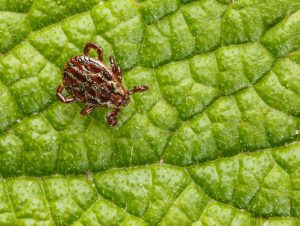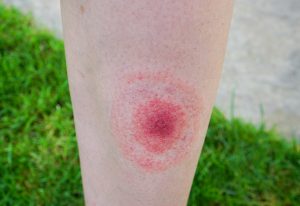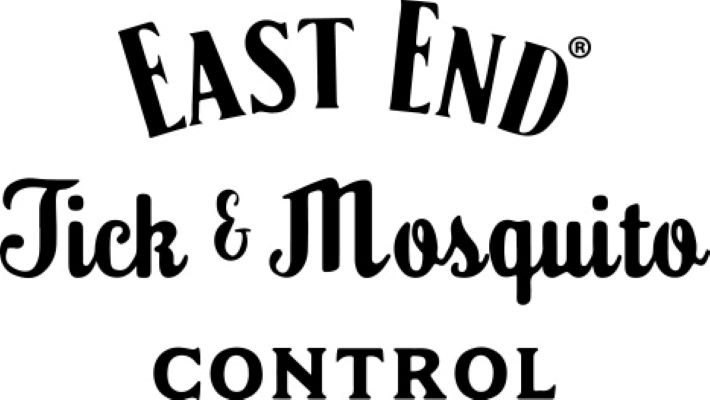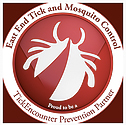Southold | Southampton | East Hampton | Montauk
Although mosquitos and ticks are very common on Long Island, there are still many misconceptions about them. We have put together a list of commonly asked questions and answers that should be of help.
FAQs About Mosquito and Tick Control
-
- What exactly is a tick?
 A tick is an arachnid, which means it is related to spiders, scorpions, and mites. Ticks are active whenever the temperature is above 40 degrees and are rarely found more than 18 inches above the ground. Ticks do not jump, fly or descend from trees. Tick bites do not hurt, and if you are bitten, you likely won’t feel it. That’s why it is very important to check for ticks frequently, during and after enjoying all outdoor activities. The sooner you find a tick and remove it properly, the less likely you will be infected. Ticks are known to carry and transmit Lyme disease and Rocky Mountain Spotted fever. The most common ticks on Long Island and the East Coast are black-legged ticks (also known as deer ticks). Dog ticks and Lone Star ticks are also found on Long Island.
A tick is an arachnid, which means it is related to spiders, scorpions, and mites. Ticks are active whenever the temperature is above 40 degrees and are rarely found more than 18 inches above the ground. Ticks do not jump, fly or descend from trees. Tick bites do not hurt, and if you are bitten, you likely won’t feel it. That’s why it is very important to check for ticks frequently, during and after enjoying all outdoor activities. The sooner you find a tick and remove it properly, the less likely you will be infected. Ticks are known to carry and transmit Lyme disease and Rocky Mountain Spotted fever. The most common ticks on Long Island and the East Coast are black-legged ticks (also known as deer ticks). Dog ticks and Lone Star ticks are also found on Long Island.
-
- What is Lyme disease?
 Lyme disease is a bacterial infection caused by an infectious tick bite. Studies show that about 50% of ticks on Eastern Long Island are infected. According to CNN, 95% of Lyme disease cases are contracted during the months of June, July, and August.
Lyme disease is a bacterial infection caused by an infectious tick bite. Studies show that about 50% of ticks on Eastern Long Island are infected. According to CNN, 95% of Lyme disease cases are contracted during the months of June, July, and August.
Early symptoms of Lyme disease: The first signs include a “bull’s eye” like rash in about 60% of Lyme disease cases. Other symptoms included chills, fatigue, headache, muscle/joint pain, and swollen lymph nodes. Symptoms may not show up for days, or even weeks. If you can, save the tick after you remove it so that your doctor can have it tested.
Later symptoms of Lyme disease: If left untreated, Lyme disease can lead to serious medical complications such as arthritis, heart and nervous system disorders, Bell’s palsy, miscarriages, stillborn births, meningitis, numbness and pain, and more. See a physician immediately if you have been bitten or develop any symptoms.
For more information on Lyme disease, check out our Lyme disease FAQ.
-
- What are mosquitoes?
The word mosquito is Spanish for “little fly.” Mosquitoes are active in warmer weather, which for Long Island would be around April-October. They are typically active in the nighttime, however, there are species such as the Asian Tiger Mosquito that are active all day. Only female mosquitoes bite humans as blood is used for egg production. These bites typically leave a bump and red area that is itchy. Mosquitoes are vectors for diseases, however, and transfer diseases such as West Nile Virus, and the Zika virus to humans when bitten. Mosquitoes breed through the use of standing water. Even small amounts of standing water can end up being breeding grounds for mosquitoes, which is one good reason to keep your gutters clean.
-
- I own a vacation home on the East End of Long Island. Is my family at risk from tick-borne disease?
Yes – 70% of people who get Lyme disease are bitten in their own yards.

-
- If there aren’t deer on our property, should we still be concerned about tick-borne disease?
Yes – rabbits, birds, squirrels, mice, chipmunks, and deer all carry infectious ticks onto your property.
-
- How effective are treatments and how long do they last?
East End Tick Control®’s treatment program has been developed through comprehensive product testing for well over a decade. Applications last for about 4 weeks and we have every confidence that our full season tick control program will completely eliminate all ticks in treated areas.
-
- Are there alternatives to harsh pesticide treatments that are equally effective?
We don’t believe the solution should be worse than the problem. We provide you with the most effective and environmentally-responsible program possible, using an optimized combination of organic and synthetic products. These products are not only environmentally responsible but also safe for your family and pets as well.
-
- If there isn’t water on or near my property should I be worried?
Mosquitoes can breed in the slightest amount of standing water, such as the water that can collect in a flowerpot or on the top of a plastic tarp. It is best to take precautions against mosquitoes regardless of how little water may be on your property.
If you have any other questions about ticks or mosquitos, need a service estimate, or you want to schedule a treatment for your property, please feel free to contact us via phone or our contact form.
-
- Can you spray for ticks in the woods?
Many clients ask if we will spray for ticks in the woods. We can spray a buffer into the woods, but no, our technicians will not walk into the woods to apply treatment. We spray your lawn and landscaping to create maximum coverage to protect your entire property.
Spraying in the woods is simply not the best way to control ticks. This kind of scattershot treatment is inefficient, ineffective, and potentially dangerous to our technicians and nearby wildlife.
You simply can’t control ticks in the woods.
FAQs in NY
Serving Southold





